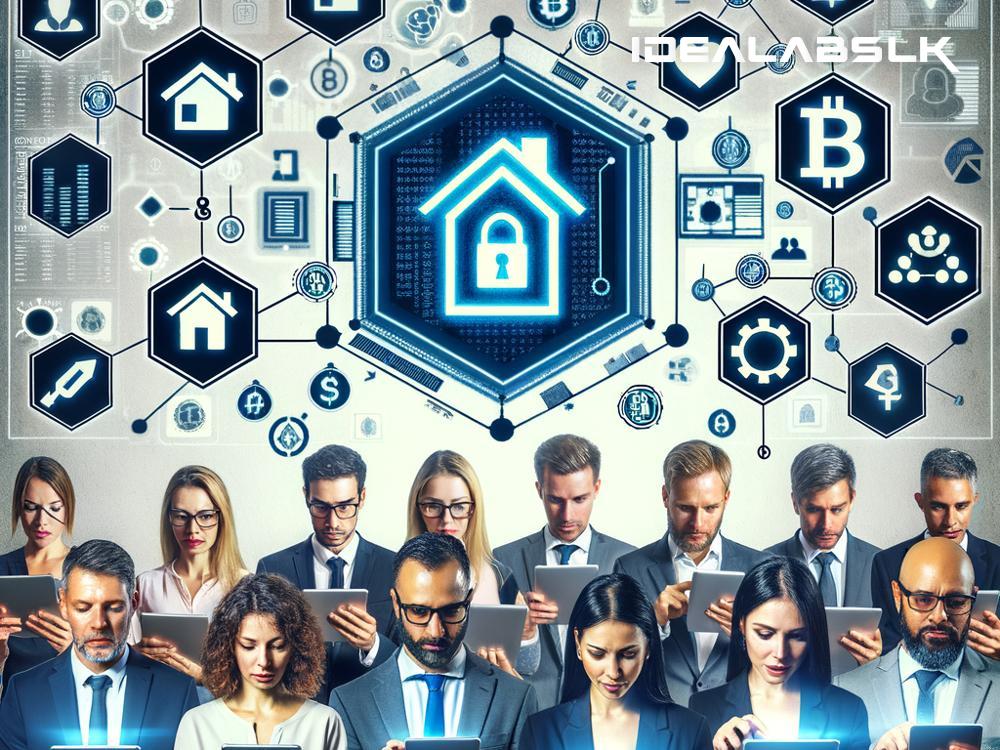Blockchain for Real Estate Investment: A Low-Cost Entry for Small Investors
Investing in real estate has traditionally been a game for the wealthy or those willing to dive into hefty loans. It’s a world where substantial upfront costs can make the dream of investing seem out of reach for many small investors. But what if there was a way to lower the barrier, making real estate investment more accessible, and more importantly, more affordable for everyone? Enter blockchain technology – a game-changer for potential investors with less capital.
Understanding Blockchain in Simple Terms
Before diving into its impact on real estate, let’s break down what blockchain is in the most straightforward way. Imagine a digital ledger that is completely secure, transparent, and tamper-proof, where transactions are recorded. This ledger isn’t controlled by any single entity (like a bank or government) but is distributed across a network of computers. This setup ensures that once a piece of information (or transaction) is added, it cannot be altered or deleted, making it exceptionally secure and trustworthy.
Blockchain Meets Real Estate
So, how does blockchain technology fit into the world of real estate investment? It introduces something called "tokenization". Tokenization is essentially the process of converting rights to an asset, in this case, real estate, into a digital token on the blockchain. This can considerably lower the entry threshold for investors in several compelling ways.
Democratizing Real Estate Investment
Blockchain technology makes it easier and more affordable to invest in real estate by allowing the sale and purchase of fractions of property through these tokens. Instead of buying an entire property, investors can buy tokens representing a share of the property's value. This method dramatically reduces the minimum investment requirement, making it feasible for small investors to get a piece of the real estate pie.
The Perks of Low-Cost Entry
-
Accessibility: With blockchain, you don’t need thousands or millions of dollars to start investing in real estate. A few hundred dollars can get your foot in the door, opening up opportunities that were previously reserved for the affluent.
-
Diversification: Lower costs mean investors can spread their investment across multiple properties or projects without putting all their eggs in one basket, reducing the risk.
-
Liquidity: Real estate is known for being a "liquid asset," meaning it can’t be quickly converted to cash. However, tokenization adds liquidity to the market. Tokens can be much more easily sold or traded than physical property, making it quicker for investors to cash out if needed.
How It Works
The mechanism behind blockchain’s entry into real estate is simplified but effective. An asset owner decides to tokenize the property, dividing it into several digital shares. Investors can then purchase these shares, becoming partial owners of the property. Their ownership stake is directly proportional to the number of tokens they hold. Any returns from the property, like rental income or value appreciation, are distributed among token holders according to their shares.
The Challenges Ahead
Despite the exciting prospects, there are hurdles. Regulatory compliance is a significant challenge since real estate and financial markets are among the most regulated sectors. Also, while blockchain technology promises to make transactions more transparent and secure, the general public’s understanding and trust in it are still growing.
Furthermore, the real estate market itself is subject to fluctuations, and while blockchain can lower entry costs and add liquidity, it doesn't eliminate market risks. Potential investors should do their due diligence, understanding not just how blockchain works but also the ins and outs of the real estate market.
Final Thoughts
Blockchain technology is reshaping the landscape of real estate investment, making it more accessible, affordable, and appealing for small investors. By facilitating low-cost entry points, it opens the doors to opportunities previously beyond reach for many. However, like any investment, it comes with its risks and complexities. As this innovative intersection of technology and real estate evolves, it's an exciting space to watch, offering a new avenue for investment and potentially changing the way we think about owning property.
The future of real estate investment is on the cusp of transformation, and blockchain might just be the key to democratizing property investment, making it a realistic goal for many, not just a privileged few.

